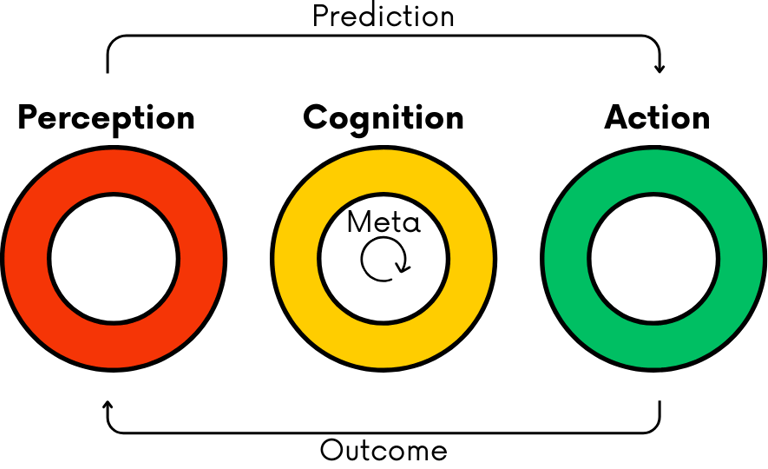The PCA Framework
Accelerating personal growth through the Perception-Cognition-Action (PCA) framework.
9/8/20232 min read
The Perception-Cognition-Action (PCA) framework serves as a powerful model for understanding human behavior and decision-making. It enables us to focus our attention on what truly matters to us and shape our responses to different situations in ways that are not only productive but also aligned with our goals.
Perception
The initial element of the PCA framework is perception. You've probably heard the phrases, "It all starts with awareness," or "Awareness is everything." These expressions capture the essence of perception's role. Our senses constantly scan and collect information from our surroundings, but it's our perception that filters and highlights what's relevant. Think of perception as the lens through which we view the world, shaped by our past experiences, biases, beliefs, and cultural influences. It's our attentional compass that directs our brains to what's worth learning. Without intentional focus and attention, we risk missing crucial information.
Let's consider a practical example: You aspire to improve your communication and negotiation skills. To begin, you must enhance your self-awareness—understand your desires, intrinsic motivations, and internal resources. Simultaneously, grasp the external factors at play, including the people in your life. By leveraging perception effectively, you'll start making choices that empower you to reach your goals.
Cognition
The next part of the PCA framework is cognition, which encompasses mental processing. This involves thinking, understanding, learning, and storing new information in long-term memory. Cognition also underscores the importance of planning with foresight—a roadmap to success. For instance, suppose you recognize the need to enhance your communication skills. This awareness prompts you to plan small, actionable steps toward your goal of increasing your value at your company. It also encourages you to explore alternative options, weighing their pros and cons. Developing self-directed learning plans enables you to solve problems and inspire others through your successes, a concept known as metacognition.
Successful cognitive processes help us recognize the patterns in our thought process and gain insights into optimizing it. This introspective ability is invaluable for personal and professional growth.
Action
Contrary to the common saying, knowledge alone isn't power—it's the application of knowledge that empowers us. Action, the third component of the PCA framework, is where perception and cognition translate into behavior. Each action yields an outcome, which, in turn, feeds back into our perception, closing the feedback loop. Feedback is a critical part of this framework as it allows us to assess the outcomes of our actions and adjust our perceptions and cognitive processes accordingly. Feedback loops enable learning, adaptation, and continuous improvement.
Consider this example: Suppose you take proactive steps to improve your communication skills by participating in workshops, seeking feedback, and practicing regularly. As a result, you notice positive changes in your interactions and contributions at work. This feedback reinforces your perception and informs your cognition, enhancing your skills even further.
In summary, the PCA framework offers a valuable tool for understanding human behavior and decision-making. These three elements—perception, cognition, and action—interact dynamically and are complemented by feedback. By recognizing their roles, we can make more informed choices and navigate various situations with greater clarity. Take a moment to reflect on your own perceptions, cognitive processes, and actions. By intentionally applying the PCA framework, you can unlock new possibilities for personal and professional growth. Stay tuned for more insightful content and practical applications of this framework.


© 2023-2026 Goals Unhindered, LLC. All rights reserved. Privacy Policy | Terms and Conditions | Refund Policy
Atlanta, GA
+1 (404) 969-6627
support@goalsunhindered.com
